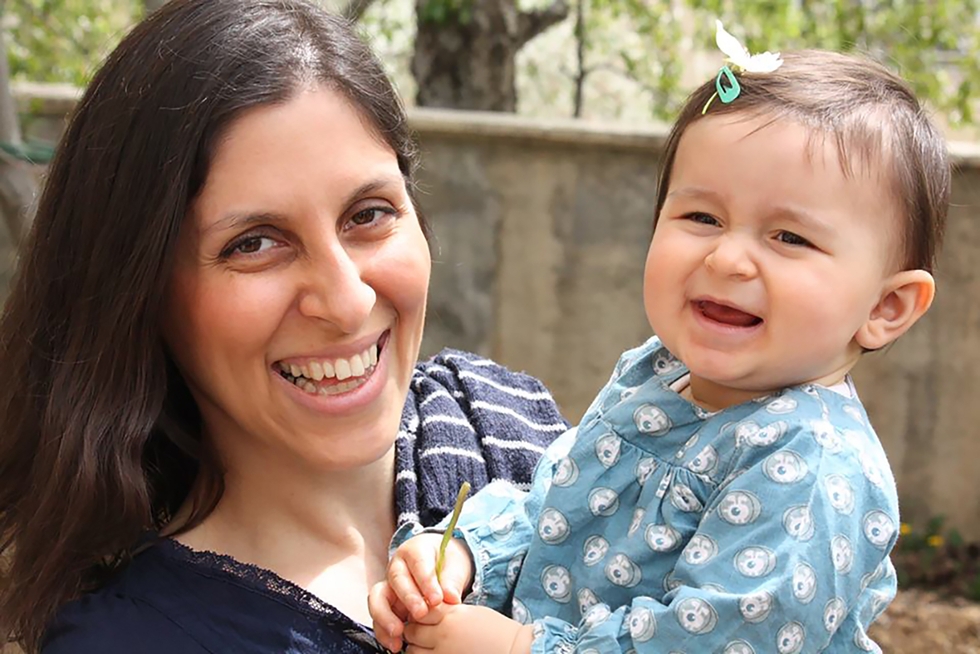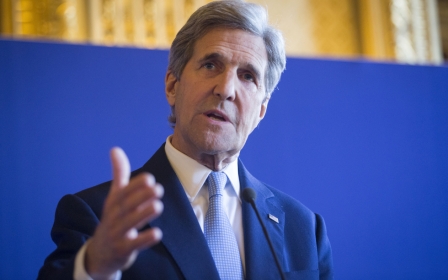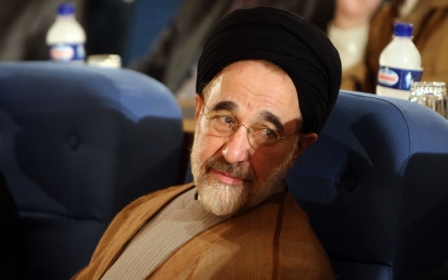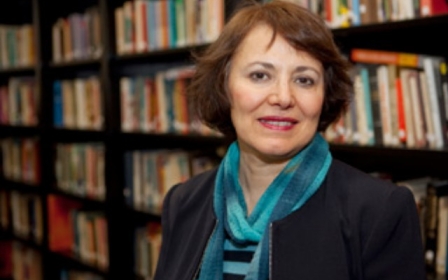Iran accuses British-Iranian woman of trying to overthrow state

A British-Iranian woman arrested in Tehran in April has been accused of espionage and attempting to overthrow the country's leadership, according to a statement from Iran’s Revolutionary Guards on Wednesday.
Nazanin Zaghari-Ratcliffe, 37, was accused of being "involved in the soft overthrow of the Islamic Republic through... her membership in foreign companies and institutions", the state-run Mizan news agency reported.
The Thomson Reuters Foundation employee was arrested on her way to the UK at the Imam Khomeini Airport by the Revolutionary Guards on 3 April while returning from a family visit to Iran for the Persian New Year.
According to the Guards, Zaghari-Ratcliffe was "identified and arrested after massive intelligence operations" as one of "the heads of foreign-linked hostile networks".
She was alleged to have conducted "various missions... leading her criminal activities under the direction of media and intelligence services of foreign governments".
"Further investigations are being done and her case has been sent to Tehran for legal proceedings," the statement added.
Zaghari-Ratcliffe moved to the UK to study in 2007, and married her British husband Richard Ratcliffe, 41, two years later. She visited Iran three times in the five years before her arrest without encountering any problems.
Her two-year-old daughter, Gabriella, has been unable to be return to the UK since she only has a British passport which has been confiscated by authorities.
Gabriella is being taken care of by her maternal grandparents in Tehran, according to the International Campaign for Human Rights in Iran (ICHRI).
Her husband on Wednesday dismissed the charges in an interview with AFP.
"It's complete nonsense. It's taken them 70 days to come up with this, and it's still not clear what it means anyway," he said.
"Her father has appointed a lawyer, the next step is to discuss with her father what the lawyer knows. And I'll probably go to the Iranian embassy," he added.
A petition calling for Zaghari-Ratcliffe’s release on change.org has gained more than 764,000 signatures.
It states that after her detention, she was transferred to the southern province of Kerman and held in solitary confinement.
“I am pleading to the British authorities, now that delegations are travelling between the two countries to improve trade and understanding, that all efforts are made to bring my wife and daughter home as quickly as possible, and to get Nazanin out of solitary confinement immediately,” Ratcliffe also said in his statement.
According to the petition, Zaghari-Ratcliffe has informed family members that she signed a confession under duress and that her case relates to national security.
Zaghari-Ratcliffe is employed by the Thomson Reuters Foundation as a project manager who oversees grants for the organisation's charitable arm.
According to the Guardian, her work was unconnected with the news agency’s coverage of Iran. Reuters has not had a bureau in Iran since 2012, when their all their staff's press accreditation was suspended following a mistake in a story about women's martial arts training.
“She is not political and she is not an activist,” her husband told the ICHRI in May. “She stayed out of trouble. I don’t think actually that anyone in her immediate family has ever been in trouble.”
Iran does not recognise dual nationality and has regularly detained and prosecuted them.
In February, British-Iranian translator Bahman Daroshafaei was arrested in Tehran. The former BBC Persian reporter was arrested during a visit to London by Mohammad Javad Zarif, the Iranian foreign minister. Daroshafaei has since been released on bail.
Britain's Foreign Office has said it has raised Zaghari-Ratcliffe's case "repeatedly and at the highest levels" and will continue to do so at "every available opportunity".
New MEE newsletter: Jerusalem Dispatch
Sign up to get the latest insights and analysis on Israel-Palestine, alongside Turkey Unpacked and other MEE newsletters
Middle East Eye delivers independent and unrivalled coverage and analysis of the Middle East, North Africa and beyond. To learn more about republishing this content and the associated fees, please fill out this form. More about MEE can be found here.




